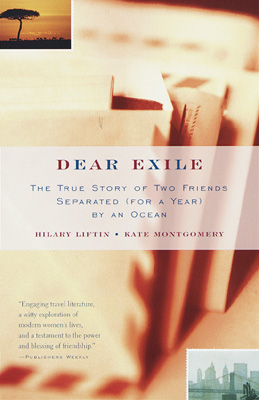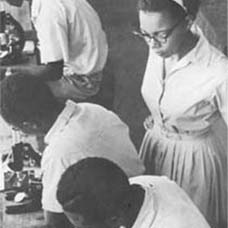
"Dear Exile ó The True Story of Two Friends Separated (For a Year) by an Ocean"
Reading Other Peopleís Mail
By SUSAN A. DE GUZMAN
RECEIVING mail is one of lifeís simple pleasures. And I donít mean the assorted bills you receive every month or the circular from your alma mater, not even the barrage of e-mail (many of them forwarded or junk) that clogs up your Internet mailbox on a daily basis.
Handwritten letters are that rarity you are lucky to receive in this age of modern communication. Thereís nothing quite like holding that envelope in your hand, opening up the enclosed sheets inside and reading the messages bearing all sorts of news from wherever the letter came from. Even if the writer is just talking about her last visit to the cinema in some American mall, that she wrote this down and sent it to you establishes an intimate connection, making you a part of her far-away world.
Before e-mail became so commonplace, I was an avid correspondent who would spend hours writing to friends and then endure the long lines at the post office (particularly during Christmas season). The "reward" would come in the form of letters from the people you wrote to and getting to know whatís happening in their lives. Then the cycle begins again as you, in turn, chronicle the littlest details thatís happening in yours.
I donít quite know when the letter-writing (or "snail mail," as they put it nowadays) stopped but it has, except for some cards which still come on Christmas and birthdays.
Today, thanks to the Internet, itís possible to stay in touch with friends who are abroad practically everyday. But how I miss the good old days of opening envelopes, flipping through the pages and re-reading those scribbled lines. Iím glad to receive the intermittent postcards, sent by friends who know I collect them. More than the actual postcard, what they probably donít know is how much I enjoy reading of their travels, their impressions of a certain place, the people they meet-even if itís all in abridged form.
What got me into this sentimental mood was reading "Dear Exile ó The True Story of Two Friends Separated (For a Year) by an Ocean" by Hilary Liftin and Kate Montgomery. The book was passed on to me by my friend Tanya, who never fails to send me postcards on each of her trips, even if, she sometimes apologizes, they are "just" hotel postcards. As if I would hold that against her. Well, even if I did, "Dear Exile" certainly more than makes up for it.
This is actually a compilation of the letters of friends and former college roommates Kate and Hilary when Kate hies off with her husband David to Africa for a year-long stint with the Peace Corps.
WARMTH OF FRIENDSHIP
Understandably, since the couple would live in a remote community in Kenya, there was no choice but to send letters via post even if the New York based Hilary would type her letters to Kate and laserprint them on her computer.
But no matter, whether typed or not, what shines through in their letters is the warmth of friendship that Hilary and Kate have. What is striking is the contrast in the worlds they inhabit during that one-period, as their letters chronicle the disparate range of experiences happening in their respective corners. On one hand, there is Kate talking of the squalid conditions in the community they have to live in (where water is deemed, upon chemical analysis, to be unfit for human consumption) and the even sorrier state of the school where she has to teach (where students are beaten with a heavy stick for the slightest infraction).
On the other hand, there is Hilary who is navigating the singles scene in the Big Apple. Her (mis)adventures actually have the feel of a "Sex in the City" episode where she inadvertently engages in a bit of Internet sex only to find out her cyber lover happens to be an officemate (yikes!), sleeps on the same bed with a male buddy during an out-of-town trip (for which she gets grief from an indignant Kate even if Hilary and the friend didnít have sex), and finds an almost-Mr. Right who, alas, breaks off their budding relationship, saying thereís something missing in it.
Hilary knows her predicaments may pale in comparison when compared to those of Kate. After all, the latter and her husband have to contend with finding a snake in their house one day, going to the choo (outhouse pit) in the middle of the night, cramming themselves into a matatu (mintruck) with seventy other people carrying livestock and produce to get to town; and much later, finding herself in the middle of a violent melee at school.
Hilary, in recounting the details of her latest break-up, tells Kate, "I realize how this may sound in context of the crisis in Kwale, but love counts, even in wartime."
But Kate of course doesnít mind. Like only a good friend can, she gives Hilary gentle reminders and dispenses advice even if she knows it might be intrusive. From the outset, Kate makes it known she will not tolerate being ignored by Hilary and nudges the latter into answering her letters as quickly as she can send them. While Kate provides her friend with accounts of the many adjustments to life in Africa, she never fails to be interested in what Hilary is up to.
In one of her earliest letters, Kate enumerates questions about Hilaryís new job, her new apartment, the status of her "non-relationship" with the aforementioned male friend. Lastly, in question number four, Kate wanted to know: "How much do you miss me?"
Once she gets started, Hilary proves to be a worthy correspondent. One of her letters recalls a Woody Allen movie. Apparently, the man living in the unit above her has taken it into his mind that Hilary is out to kill him ó to the point, that he even confronts her in the elevator about it, much to Hilaryís fright. Itís the kind of paranoia and weirdness that may be attributed to New York living, but itís also proof that no matter where one is in the world, scary things can happen anytime.
ATTENTION TO DETAILS
Both women write with such detail that both the remote villages of Kenya (first Ramisi, then Kwale) and the urban jungle of New York come to life, awash in colorful descriptions and vivid prose. I could almost smell the stench as Kate describes how the students urinate just outside their classrooms in the absence of a working toilet. Similarly, I could picture Hilaryís sense of wonder and independence at having her own apartment as she savors the sunlight filtering through the windows.
Hilary might be wrapped up in her own world in many of her letters, but she expresses concern at the challenges her friend faces in Kenya. She canít quite believe Kate has to do without daily showers and nags her to keep taking vitamins to be scurvy-free. Early on, she writes Kate: "Youíll come home if itís too bad, right? Could you please be serious for one minute about this? Iím not your mother. Donít give me sunshine and petunias. Iíll be angry at you if you send me a bunch of blasé letters and then drop dead."
Well, Kate indeed doesnít spare her the details, writing of one infection after another that would eventually afflict her. But there is humor in almost every account (as there is in Hilaryís), and this sense of the absurb helps each cope with what they have to deal with and keeping matters light for the other.
In the end, when violence erupts at the school in Kwale, Kate and David are pulled out by the Peace Corps. But still for all the trouble they encountered, it is a sentimental departure for Kate from the place they had come to call, even for a short while, home.
"Dear Exile" ends on a wistful note, with Kate returning to the United States for Christmas, a little over a year since she had left. Now that they were back in the same city, there was no need for Hilary and Kate to write letters but curiously, there was little time afterwards, to get together as much as they used to. Letters foster a certain closeness just like they did in these two womenís year apart. The irony was that when Kate got back, it seemed as if there was a divide between them as they moved in their own separate worlds ó Hilary, still steering through the singles scene in her endless quest for an ideal partner and changing jobs yet another time; and Kate, focusing on a teaching post and building her own family.
In the bookís epilogue, Kate, with that tinge of longing and trademark humor writes: "I donít speak with Hilary much, sheís rarely home. Itís hard to keep in regular contact now that we live in the same city, but we manage. She continues to date and occasionally, to pine. She continues to receive promotions, and the last time she tried to explain her new job to me, I pretended to understand. I suspect she knew I was pretending."
Still, the then pregnant Kate is hopeful: "Iíd like to believe there will be a time in the not-so-distant future when weíll sit, I with my bulging belly and she in her wool suit, sipping water or coffee, eating bread or cake, and weíll have more time to talk."
But then, if they never do that, theyíll always have those letters.
For comments, please write to susandgpages@yahoo.com







